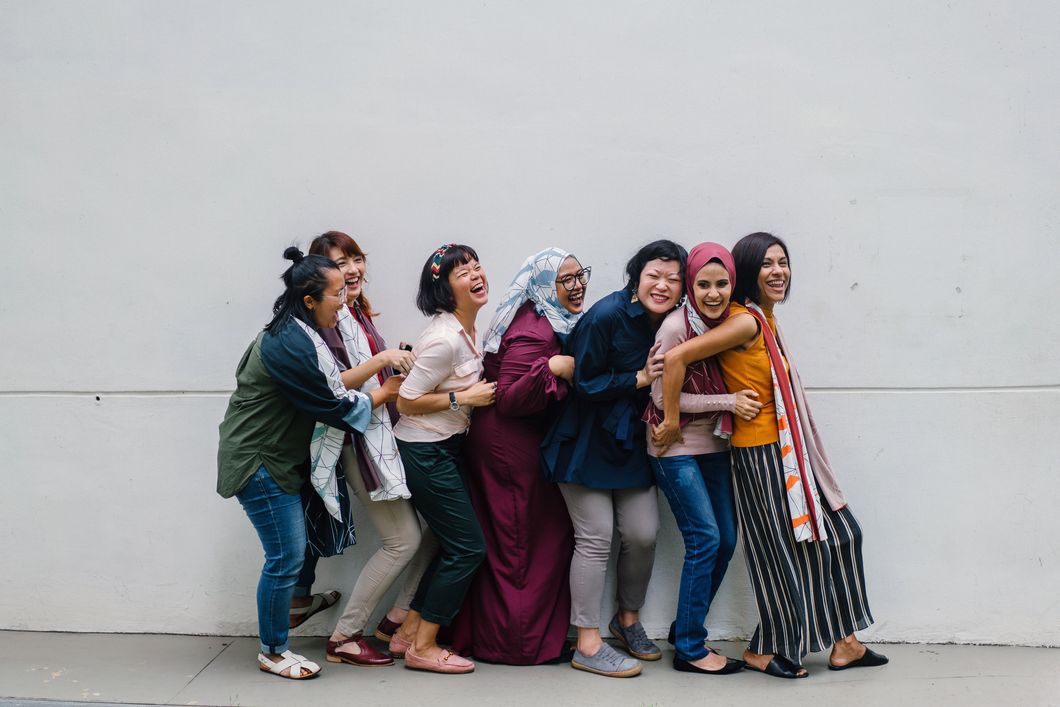Hoodies, an Israeli clothing brand, recently aired an ad depicting a famous Israeli supermodel wearing a niqab with the subtitle, "is Iran here?" After a moment of reflection, she rips the piece of clothing off and jumps around the screen in different Hoodies clothes before a voice-over at the end claims that "Freedom Is Basic." While some have celebrated the ad for calling out Iran's human rights abuses and its compulsory hijab laws, most have critiqued the ad for Islamophobia.
A second ad has replaced the first, depicting many niqab-covered faces that look out of the screen without any subtitles before the niqab is ripped off and the first Israeli supermodel, as well as other models (including a hijabi athlete and a Jewish man in a skullcap), jump around the screen before declaring that "Freedom Is Basic."
Some may think that the second ad makes up for the first, especially because it is inclusive of a hijabi woman, but I am hesitant to agree. The removal of a niqab being equated with freedom, regardless of who else is in the ad, shows a blatant misunderstanding of Muslim modesty.
The Quran calls for modesty in men as well as women, something often overlooked, and that modesty has nothing to do with freedom. Men are told to "restrain their eyes" in order to stay pure. They are told to cover their "private part," which officially refers to the region from the naval to the knee. The Hadith tradition even tells men what fabrics to wear, how long their beard should be, not to wear gold, and more. Restrictions like this do sound oppressive, the very opposite of freedom, but they are for protection and purity. After all, freedom without rules is anarchy.
Muslim women's modesty is similar. Covering oneself is a choice that comes out of the desire to please Allah, for it was Allah who gave the command for modesty. Covering is part of worship, for Muslims are called to life worshipfully in all areas of life, including how they dress. Many women explain that covering themselves gives them freedom from other people's desires and worrying about other's perceptions. It is also a reminder to not dress for men or worry about the external, but focus on the internal.
With this understanding, both Hoodies ads make no sense. The only logical explanation for them is that in some parts of the world, hijab is required and in those scenarios, hijabs and other coverings are tools of oppression used by those in power. Removing them in those contexts would be a display of freedom, but niqabs by themselves do not represent oppression. Tearing them off does not automatically represent freedom. By showing such a simplistic view in their ad, Hoodies stereotypes hijabs and other covers as negative.
I've experienced a sliver of those anti-hijab stereotypes during my involvement in World Hijab Day. I'll never forget when a man made eye contact with me, ran his eyes over his entire body including my headscarf, made eye contact with me again, and then walked away with a look of disgust on his face. When I rode the bus on my school's campus, my friends told me about a group of girls that kept staring at me (which I didn't notice). I've had genuine questions from good people and I've had people ask me why I'm wearing "that" in a tone that sounds like I'm wearing the dirtiest thing they can imagine. But nothing I was wearing was dirty-- I freely choose what I was wearing so that I could better understand what hijabi women go through every day. It was no different than my freely made decisions about what I wear on other days.
Hoodies should remember that freedom does not look one way. Freedom implies choice and sometimes people choose differently than others. Those differences are good and should be encouraged by fashion brands, not stereotyped like in their recent ad.





 mr and mrs potato head
StableDiffusion
mr and mrs potato head
StableDiffusion










